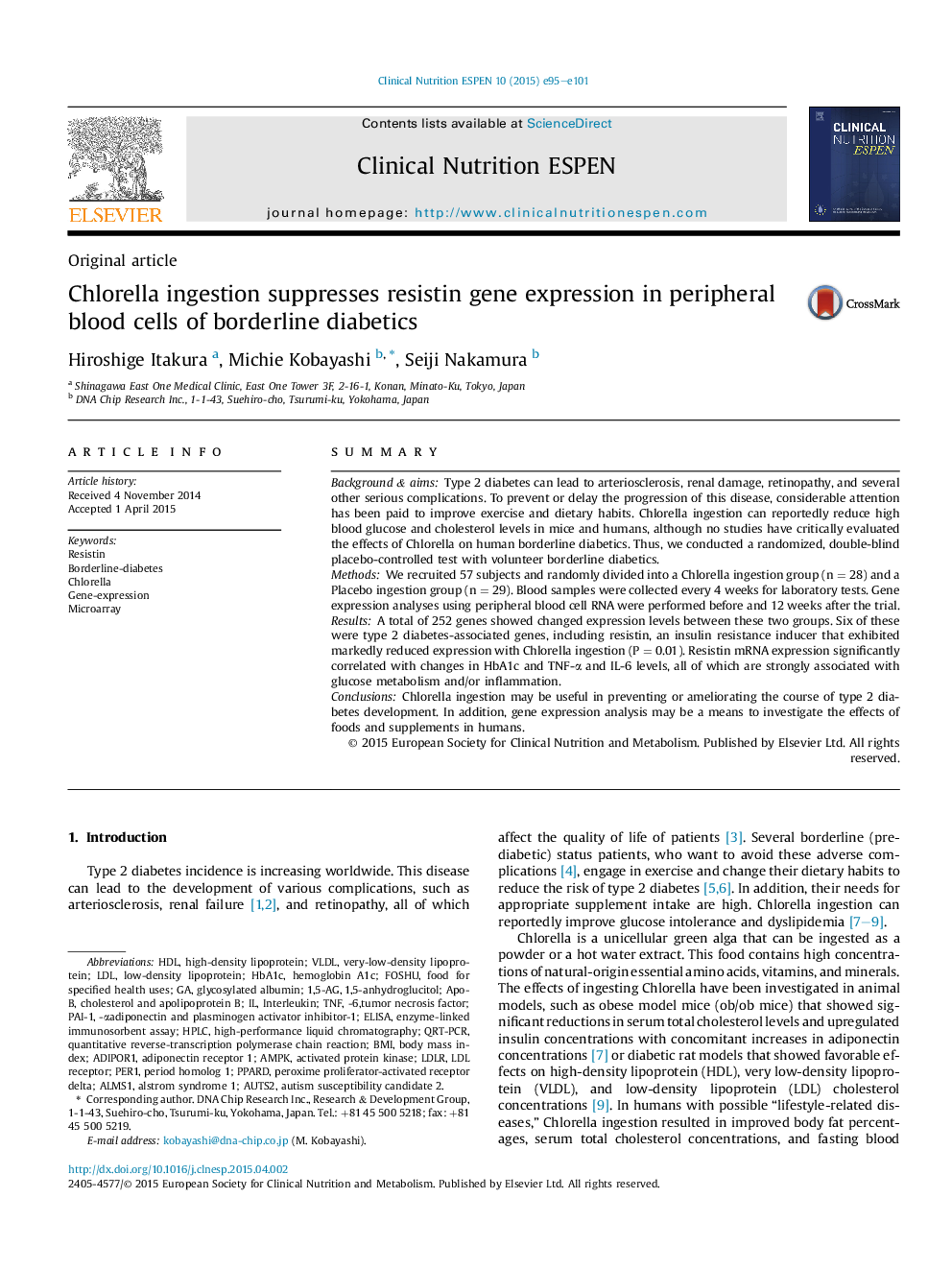| کد مقاله | کد نشریه | سال انتشار | مقاله انگلیسی | نسخه تمام متن |
|---|---|---|---|---|
| 2689056 | 1143180 | 2015 | 7 صفحه PDF | دانلود رایگان |
• We examine the effects of Chlorella on human borderline diabetes.
• We conducted a randomized, double-blind placebo-controlled study.
• Chlorella ingestion significantly suppressed resistin.
• Resistin mRNA expression significantly correlated HbA1c and TNF-A and IL-6 levels.
• Chlorella ingestion may be useful in preventing the type 2 diabetes development.
SummaryBackground & aimsType 2 diabetes can lead to arteriosclerosis, renal damage, retinopathy, and several other serious complications. To prevent or delay the progression of this disease, considerable attention has been paid to improve exercise and dietary habits. Chlorella ingestion can reportedly reduce high blood glucose and cholesterol levels in mice and humans, although no studies have critically evaluated the effects of Chlorella on human borderline diabetics. Thus, we conducted a randomized, double-blind placebo-controlled test with volunteer borderline diabetics.MethodsWe recruited 57 subjects and randomly divided into a Chlorella ingestion group (n = 28) and a Placebo ingestion group (n = 29). Blood samples were collected every 4 weeks for laboratory tests. Gene expression analyses using peripheral blood cell RNA were performed before and 12 weeks after the trial.ResultsA total of 252 genes showed changed expression levels between these two groups. Six of these were type 2 diabetes-associated genes, including resistin, an insulin resistance inducer that exhibited markedly reduced expression with Chlorella ingestion (P = 0.01). Resistin mRNA expression significantly correlated with changes in HbA1c and TNF-α and IL-6 levels, all of which are strongly associated with glucose metabolism and/or inflammation.ConclusionsChlorella ingestion may be useful in preventing or ameliorating the course of type 2 diabetes development. In addition, gene expression analysis may be a means to investigate the effects of foods and supplements in humans.
Journal: Clinical Nutrition ESPEN - Volume 10, Issue 3, June 2015, Pages e95–e101
